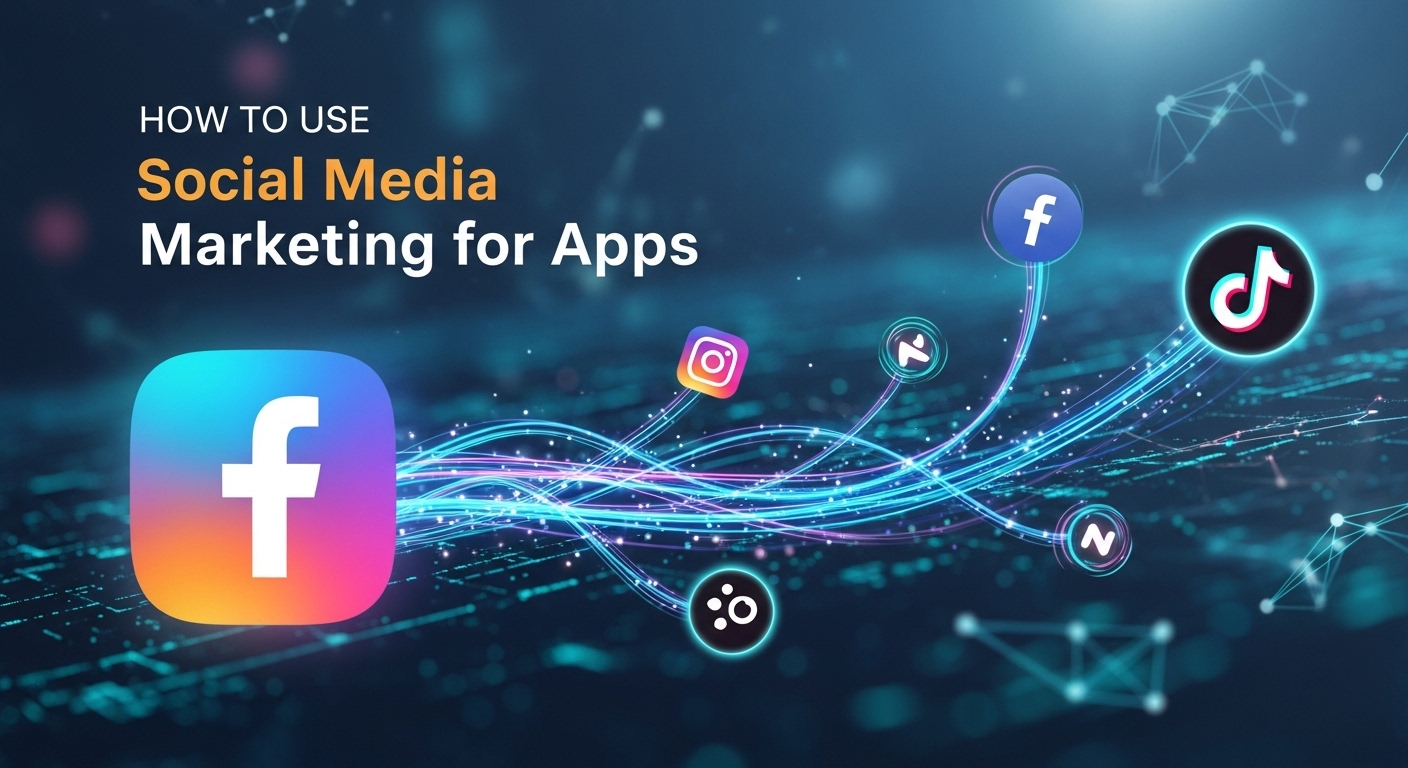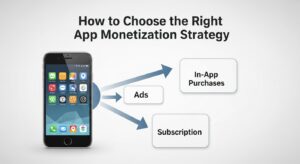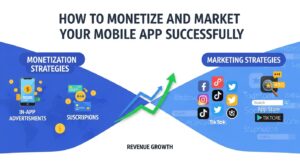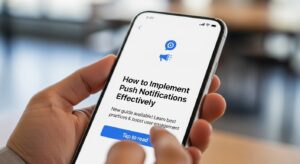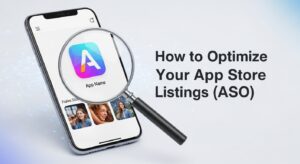Are you struggling to get your app noticed in today’s crowded digital marketplace? With over 8.93 million apps available across major app stores, social media marketing for apps has become the secret weapon that separates successful launches from forgotten downloads.
Social media platforms now drive approximately 40% of all app discoveries, making them indispensable for any serious app marketing strategy. Whether you’re launching your first app or looking to revitalize an existing one, understanding how to leverage social media effectively can transform your download numbers and user engagement rates.
Why Social Media Marketing for Apps Is Essential in 2025
The mobile app landscape has evolved dramatically. Traditional advertising methods alone no longer guarantee success. Users now rely heavily on social proof, peer recommendations, and authentic content before making download decisions.
Consider this: apps promoted through strategic social media campaigns see an average of 300% higher download rates compared to those relying solely on app store optimization. The key lies in understanding which platforms align with your target audience and crafting content that resonates with their needs.
Social media marketing for apps offers unique advantages including real-time user feedback, cost-effective advertising options, and the ability to build communities around your app. These benefits compound over time, creating sustainable growth that extends far beyond initial launch periods.
Understanding Your App’s Social Media Audience
Before diving into platform-specific strategies, you need to identify where your potential users spend their time online. Different demographics gravitate toward different platforms, and your social media marketing for apps strategy should reflect these preferences.
Demographic Breakdown by Platform:
Platform | Primary Age Group | Best App Categories |
TikTok | 16-34 years | Gaming, Entertainment, Lifestyle |
25-44 years | Photography, Fitness, Food | |
35-54 years | Productivity, News, Finance | |
25-49 years | Business, Professional Tools | |
YouTube | All ages | Educational, Gaming, How-to |
Research your competitors’ social media presence to understand what content performs well in your niche. Tools like Social Blade and BuzzSumo can provide valuable insights into successful content strategies within your app category.
Platform-Specific Social Media Marketing for Apps Strategies
TikTok Marketing for Mobile Apps
TikTok has emerged as the most powerful platform for app discovery among younger demographics. The platform’s algorithm favors authentic, entertaining content that showcases real app usage scenarios.
Effective TikTok strategies include:
Creating quick app demos that highlight your app’s most compelling features within the first three seconds. Users decide whether to continue watching within this crucial window, so lead with your strongest value proposition.
Partnering with micro-influencers who genuinely use apps in your category. Authentic testimonials from creators with 10,000-50,000 followers often generate higher engagement rates than celebrity endorsements.
Developing trending hashtag campaigns that encourage user-generated content. When users create videos featuring your app, it provides social proof while expanding your reach organically.
Instagram Marketing Excellence
Instagram’s visual-first approach makes it ideal for apps with strong aesthetic appeal or clear visual benefits. The platform offers multiple content formats that can showcase different aspects of your app experience.
- Instagram Stories and Reels provide excellent opportunities for behind-the-scenes content, quick tutorials, and user testimonials. Stories’ temporary nature creates urgency, while Reels can achieve broader reach through the platform’s algorithm.
- Instagram Shopping features allow apps with e-commerce components to create seamless purchase experiences directly within the platform. This reduces friction in the user journey from discovery to download.
User-generated content campaigns work particularly well on Instagram. Encourage existing users to share screenshots, reviews, or creative uses of your app using branded hashtags.
Advanced Social Media Marketing for Apps Techniques
Leveraging User-Generated Content
User-generated content (UGC) serves as powerful social proof while reducing your content creation burden. Apps that successfully incorporate UGC into their social media marketing for apps strategy see 50% higher engagement rates.
Strategies for encouraging UGC:
- Create contest campaigns that reward users for sharing their app experiences. Offer premium features, exclusive access, or monetary rewards to incentivize participation.
- Feature user stories prominently on your social media channels. When users see others like them being highlighted, they’re more likely to engage and share their own experiences.
- Develop shareable in-app moments that naturally encourage social sharing. This could include achievement unlocks, milestone celebrations, or particularly impressive results users want to showcase.
Cross-Platform Integration
Successful social media marketing for apps requires coordinated efforts across multiple platforms. Each platform should serve a specific purpose within your broader strategy while maintaining consistent branding and messaging.
Cross-platform coordination strategies:
- Repurpose content strategically across platforms while adapting to each platform’s unique format requirements. A single app demo video can become a TikTok short, Instagram Reel, YouTube tutorial, and Facebook post with platform-specific optimizations.
- Create platform-specific landing pages that align with your social media campaigns. Users clicking through from TikTok expect different experiences than those arriving from LinkedIn.
- Implement unified tracking systems that measure cross-platform performance. Tools like Google Analytics and Branch can help attribute downloads to specific social media touchpoints.
Measuring Social Media Marketing for Apps Success
Tracking the right metrics ensures your social media efforts translate into meaningful business results. Focus on metrics that directly correlate with app performance rather than vanity metrics like follower counts.
Key performance indicators include:
- Click-through rates from social media posts to app store pages indicate content effectiveness. Aim for CTRs above 2% for organic posts and 3% for paid campaigns.
- Install conversion rates measure how many social media visitors actually download your app. Industry averages range from 15-25%, depending on app category and traffic source.
- Cost per install (CPI) helps evaluate paid social media campaign efficiency. Compare CPIs across platforms to optimize budget allocation.
- User retention rates reveal whether social media-acquired users remain engaged long-term. Users from social media often have different behavior patterns than those from other acquisition channels.
Common Social Media Marketing for Apps Mistakes to Avoid
Many app developers make critical errors that undermine their social media marketing efforts. Understanding these pitfalls can save significant time and resources.
- Posting without strategy represents the most common mistake. Random, inconsistent posting confuses audiences and wastes resources. Develop content calendars that align with app updates, seasonal trends, and user behavior patterns.
- Ignoring community management can damage your app’s reputation. Respond promptly to comments, address concerns transparently, and engage authentically with your audience.
- Focusing solely on acquisition while neglecting retention creates unsustainable growth. Balance new user acquisition with content that keeps existing users engaged and likely to recommend your app.
Future-Proofing Your App’s Social Media Strategy
The social media landscape continues evolving rapidly. Successful social media marketing for apps requires adaptability and forward-thinking approaches.
Emerging trends to monitor:
- Audio-first content is gaining traction across platforms. Consider how audio elements can enhance your app marketing, whether through podcast partnerships, social audio platforms, or voice-enabled features.
- Augmented reality integration offers new ways to showcase app functionality. Platforms increasingly support AR experiences that can provide immersive app previews.
- Community-building features are becoming central to platform algorithms. Focus on creating genuine communities around your app rather than broadcasting promotional messages.
Building Long-Term Success Through Social Media Marketing for Apps
Sustainable app growth requires viewing social media marketing as an ongoing conversation with your community rather than a series of promotional campaigns. The most successful apps build lasting relationships that extend far beyond initial downloads.
Long-term strategies include:
- Developing thought leadership content that positions your app as an industry authority. Share insights, trends, and valuable information that benefits users regardless of whether they use your specific app.
- Creating exclusive social media communities for your most engaged users. These spaces foster loyalty while providing valuable feedback for app improvements.
- Partnering with complementary apps and services for cross-promotion opportunities. Strategic partnerships can expand your reach while providing value to both audiences.
- Social media marketing for apps success doesn’t happen overnight. Consistency, authenticity, and genuine value creation form the foundation of all successful long-term strategies.
- The apps that thrive in today’s competitive landscape understand that social media marketing isn’t just about driving downloads—it’s about building communities, fostering relationships, and creating experiences that users want to share with others.
- As you implement these strategies, focus on providing genuine value to your audience while staying true to your app’s core mission. The most effective social media marketing feels natural and helpful rather than pushy or promotional.
- Your app’s social media marketing journey starts with understanding your audience, choosing the right platforms, and consistently delivering content that resonates with user needs and interests. With patience, strategy, and authentic engagement, social media can become your app’s most powerful growth engine.

